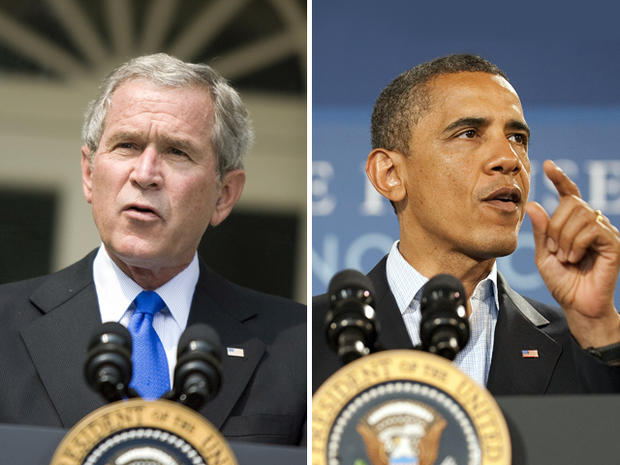Obama has fewer but more costly regulations than Bush
President Obama has approved fewer regulations than President George W. Bush did at this point in his presidency, according to Bloomberg News -- but Mr. Obama's have been costlier.
In his first 33 months as president, Mr. Obama has approved 613 federal regulations, Bloomberg reported after reviewing data from the White House Office of Management and Budget. By comparison, Mr. Obama's predecessor had approved 643 new rules within the same time span.
However, Mr. Obama has approved 129 rules that cost more than $100 million, compared with 90 such rules under Mr. Bush. That's in part due to inflation, Michael Livermore, executive director of the Institute for Policy Integrity at the New York University School of Law, told Bloomberg.
Focusing on major pieces of legislation like Mr. Obama's health care overhaul, Republicans have blamed the Obama administration for weighing down the economy by hampering businesses with too many regulations.
Liberal economists dispute that notion.
"Why should businesses expand when they're not using the capacity they already have?" asked Nobel laureate Paul Krugman in a New York Times column last month debunking the Republican talking points.
In August, House Speaker John Boehner questioned the Obama administration about the number of regulations it has proposed with a projected economic impact of at least $1 billion. And in his first television ad, Republican presidential candidate Rick Perry says he'll revive the economy in part by "eliminat[ing] President Obama's regulations that hurt... sources of domestic energy."
As Bloomberg notes, some business owners are concerned about regulations -- 18 percent of small business owners surveyed by the National Federation of Independent Business called regulation their most important problem.
Mr. Obama has responded to concerns about government waste and inefficient regulations by calling for a government-wide regulatory review. In August, the White House unveiled a plan to eliminate some regulations and simplify others, which they said could save more than $10 billion over five years.
